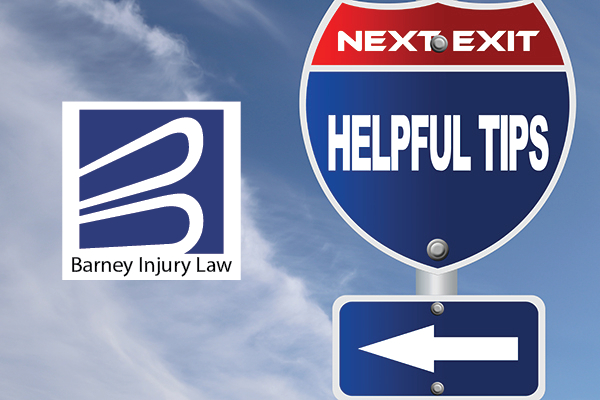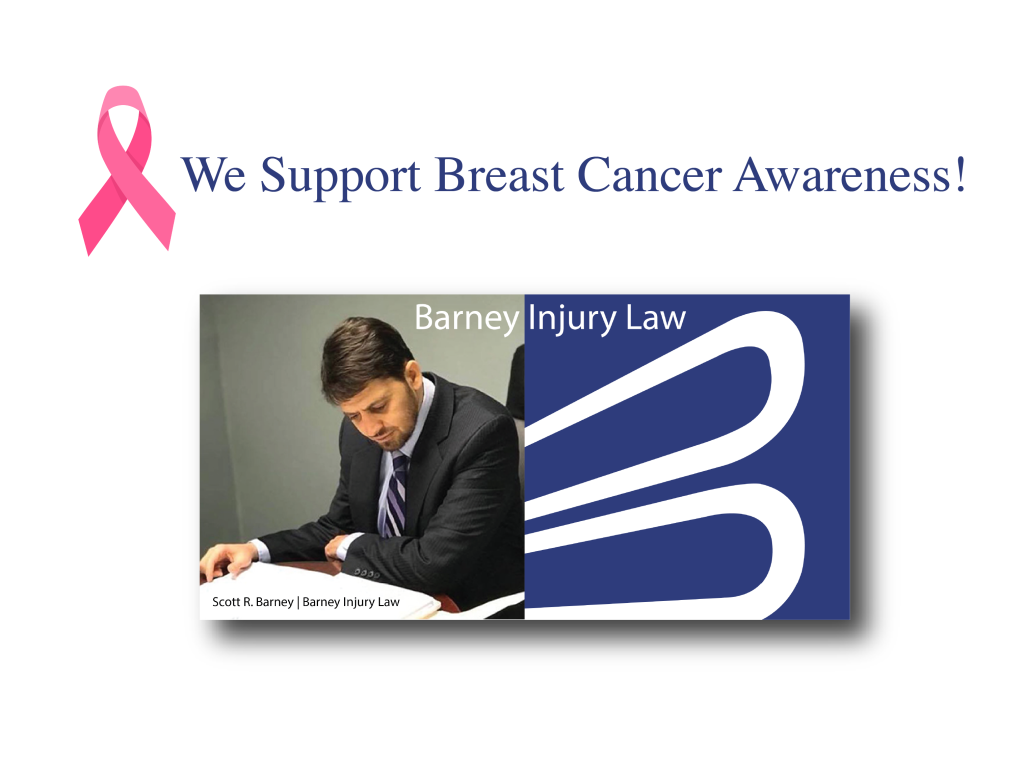Ensuring one’s safety on the roads is of paramount importance, and steps must be taken to reduce the likelihood of car accidents. Whether you’re a new driver or have been driving for years, knowing and following these simple safety tips can make all the difference in preventing an accident. From wearing your seatbelt at all times and obeying traffic laws and signals to avoid distractions while driving and maintaining your vehicle regularly – understanding how to stay safe on the road is key. We’ll cover some important safety tips that everyone should be aware of when they get behind the wheel in order to help keep them safe from harm so they don’t become another statistic due to preventable car accidents. Note: if you have been injured in a car accident in the Virginia Beach, VA area it is important to contact a Virginia Beach Car Accident Lawyer today. Call Barney Injury Law for professional legal advice.
Table of Contents:
- Wear Your Seatbelt
- Avoid Distractions While Driving
- Obey Traffic Laws and Signals
- Be Alert for Other Drivers on the Roadway
- Maintain Your Vehicle Regularly
- FAQs in Relation to Safety Tips to Avoid Car Accidents
- Obey traffic laws:
- Check tire pressure regularly:
- Maintain vehicle upkeep:
- 6 .Avoid driving under influence:
- 7 .Be aware of weather conditions:
- Education:
- Engineering:
- Enforcement:
- Stay calm and assess the situation:
- Document evidence at the scene:
- Notify your insurance company promptly:
- Follow up on any treatment needed:
- What are 4 main causes of accidents?
- Speeding:
- Drunk Driving:
- Poor Road Conditions:
- Conclusion
Wear Your Seatbelt
Securing oneself with a seatbelt is an essential precaution for avoiding auto mishaps. It is essential to wear a seatbelt properly adjusted for your size and weight, and to replace it when necessary. Benefits of wearing a seatbelt include the potential to diminish serious injury or death in an accident, as well as providing supplemental aid during unexpected halts or rotations.
Benefits of Wearing a Seatbelt
Seat belts can be instrumental in decreasing the odds of severe harm or even death in a collision, thus making them an invaluable safety measure. A study conducted by The National Highway Traffic Safety Administration found that using restraints reduced fatal injuries by 45%. Furthermore, the use of restraints can drastically reduce the likelihood of non-fatal injuries like fractures and internal harm by half. The data suggest that buckling up can drastically decrease the likelihood of sustaining severe injuries, even in a crash.
Properly Adjusting Your Seat Belt
In order for your seat belt to be effective, it must be properly adjusted for your size and weight. Make sure that the lap portion fits snugly across your hips rather than up around your stomach area; this will help keep you secure during any sudden stops or turns. The shoulder strap should also fit comfortably against your body without being too tight; make sure there’s enough slack so you don’t feel restricted while driving but still secure enough so it won’t slip off during movement.
Knowing When To Replace Your Seat Belt
It is important to know when it is time to replace your vehicle’s seat belts due to age and wear-and-tear over time from regular use, especially if they were involved in an accident previously. If any part appears frayed or torn, then immediately replace them with new ones since these signs indicate weakened material which could lead to breakage under pressure in case of emergency braking situations on roads. In addition, inspect all buckles regularly for proper functioning. Lastly, check expiration dates on labels attached on each individual restraint system before replacing them.
Wearing your seatbelt is an essential step to keeping yourself safe while driving. It’s important to adjust it properly and replace it when necessary, but now let’s look at how avoiding distractions can also help prevent car accidents.
Key Takeaway: Maintaining an appropriately fitted seatbelt, and swapping it out when needed, can drastically decrease the chances of severe injury or fatality in a crash.
Avoid Distractions While Driving
Distracted driving is a major factor in vehicle collisions, so it’s essential to stay attentive while behind the wheel. Put away cell phones and other devices while driving. Tempting though it may be, leave those notifications unanswered while behind the wheel; this includes any kind of electronic messaging, phone conversations, game playing or video streaming. It can be tempting to answer a call or check a text message when you hear your phone ring but this can wait until you reach your destination safely.
Don’t indulge in food or drink while operating a vehicle, as this can divert your focus away from the roadway for too long and raise the odds of an accident occurring. Eating requires both hands which means that you won’t have full control over steering if something unexpected happens in front of you such as another vehicle suddenly stopping or swerving out of its lane. Keep the volume of music low so that you can still hear traffic around you including sirens from emergency vehicles such as police cars and ambulances that may need to get by quickly.
Be vigilant and stay focused when behind the wheel; don’t let yourself be sidetracked by external stimuli. Paying heed to the traffic directives, like stop signs, yield signs and lights, can be a great help in maintaining your security while driving.
Key Takeaway: Be mindful of your surroundings while driving; limit distractions and focus on the road to avoid car accidents.
Obey Traffic Laws and Signals
Driving is a privilege and should be taken seriously. Obeying traffic laws and signals are essential to staying safe on the roadways. Following speed limits and driving defensively can help reduce the risk of car accidents.
Follow Speed Limits and Drive Defensively
Speed limits are posted for a reason, so it’s important to follow them at all times while driving. Driving too quickly or slowly can be hazardous, not just for you but also for other motorists. It’s also important to drive defensively by anticipating what other drivers may do, such as sudden stops or turns without warning signs. Anticipating other drivers’ moves can provide more time to act if needed, thus helping avoid collisions caused by delayed reactions.
Be Aware of Road Conditions and Weather Changes
It’s important to pay attention not only to the speed limit but also the condition of the roads that you are traveling on. Wet roads can cause hydroplaning which could lead to an accident if not handled properly with cautionary steps like slowing down when entering wet surfaces or avoiding puddles altogether when possible. Also keep in mind that weather conditions such as fog, rain, snow, ice etc., can make visibility difficult so take extra precaution when necessary by reducing your speed even further than normal depending on how severe it is outside your vehicle window viewable area . It is a good idea to check the Virginia Beach Weather before traveling long distances.
Pay Attention To Stop Signs Yield Signs And Traffic Lights
By following the traffic laws and signals, you can help ensure your safety on the road. Yet, to stave off potential accidents, being mindful of other drivers, pedestrians, cyclists, motorcyclists and large trucks is essential when navigating the roads.
Key Takeaway: Driving defensively, monitoring road conditions and weather alterations, and observing stop signs, yield signs, and traffic signals are all necessary to ensure a safe driving experience.
Be Alert for Other Drivers on the Roadway
Staying vigilant while driving is critical to avoiding collisions with other motorists; being aware of one’s surroundings and any potential risks can help avert tragedy. Unsafe drivers can pose a serious threat, so it’s important to keep an eye out for any reckless or careless behavior. Be aware of other motorists who may be going too fast, changing lanes abruptly, following too closely behind another vehicle, disregarding traffic signals and not using turn signals. It’s also important to watch out for pedestrians, bicyclists, and motorcyclists who may not always be visible due to their smaller size. Be sure to give them extra space when passing by or turning near them as they are more vulnerable than cars in the event of an accident.
Large trucks should also be given extra attention while driving as they have limited visibility from their higher vantage point and require more time and distance when stopping or turning compared with smaller vehicles. Make sure you leave plenty of room between your vehicle and large trucks on the roadways as they often make wide turns that can extend beyond lane lines into adjacent lanes of traffic. Additionally, check your rearview mirror frequently if you are following a truck closely since these vehicles tend to brake suddenly without warning due to their heavy loads which can cause collisions if another driver is too close behind them.
In addition to being aware of other drivers on the roadways, it is equally important that your own vehicle is properly maintained in order to ensure optimal performance and safety while driving. Check tire pressure regularly before taking off on long trips; this will help prevent blowouts caused by underinflated tires which could potentially lead into dangerous situations such as skidding or loss of control over the vehicle. All lights should also be working properly before getting onto highways; broken headlights, taillights, turn signals, and brake lights can significantly increase risk factors especially at night. Lastly, having regular maintenance checks done by experienced mechanics will help identify potential issues early on before they become major problems down the line.
Staying vigilant on the road is paramount; for other motorists may be erratic and hazardous. Therefore, it is important to maintain your vehicle regularly in order to ensure optimal performance and safety while driving.
Key Takeaway: Staying mindful of other drivers and keeping your car in good shape are key to avoiding collisions; be extra cautious when overtaking large trucks, give cyclists and pedestrians more room, and routinely inspect tire pressure.
Maintain Your Vehicle Regularly
Regular vehicle maintenance is essential for optimal performance and safety on the roadways. It is imperative to guarantee your vehicle is in good shape before venturing out on the streets, as it can help diminish the danger of car accidents. Check tire pressure regularly to ensure proper inflation levels; this will improve handling and braking while also helping with fuel efficiency. Make sure all lights are working properly before taking off; a burned out headlight or taillight could cause an accident if another driver doesn’t see you in time. Have regular maintenance checks done by an experienced mechanic; they can check for any potential problems that may arise from wear and tear over time.
It’s also important to check brakes regularly, as worn brake pads can decrease stopping power significantly and increase the chances of an accident occurring. Inspect windshield wipers periodically to make sure they are functioning correctly; replace them if necessary as poor visibility due to foggy windows or heavy rain could lead to a crash. Check fluid levels such as oil, coolant, transmission fluid, etc., at least once every two months; low fluids could cause damage to engine components which would be costly down the line. Finally, replace worn tires when needed as balding tires have less grip on wet roads which increases the chance of hydroplaning or skidding into other vehicles or objects along the roadway.
By adhering to these straightforward measures, you can keep your car in tip-top shape and mitigate the chances of being involved in a mishap resulting from mechanical breakdown or reduced visibility caused by malfunctioning components like headlights or windshield wipers.
Key Takeaway: Regular maintenance and inspections of vehicles are essential for mitigating the danger of car accidents; ensure brakes, fluids, tires, lights and wipers are routinely examined to guarantee maximum efficiency and security.
FAQs in Relation to Safety Tips to Avoid Car Accidents
1. Obey traffic laws:
Following the rules of the road, such as speed limits and stop signs, can help prevent accidents.
2. Maintaining focus on the roadway is critical for safety; a lapse in concentration, even momentarily, can have disastrous consequences and lead to collisions.
3. Seatbelts are a must for safety; wearing one can be the difference between life and death in an accident.
4. Check tire pressure regularly:
Poorly inflated tires can cause loss of control while driving, leading to an accident or crash.
5. Maintain vehicle upkeep:
Regular maintenance helps ensure that all parts are functioning properly and safely on your car or truck at all times.
6 .Avoid driving under influence:
Driving under influence increases risk for accidents due to impaired judgement and reaction time behind the wheel .
7 .Be aware of weather conditions:
Adverse weather conditions such as rain , snow , fog etc can reduce visibility and increase chances for accidents .
1. Education:
Teaching people about the risks associated with certain activities and how to stay safe can help prevent accidents from occurring in the first place. This includes teaching people proper safety protocols, such as wearing protective gear when engaging in risky activities or using caution when driving a vehicle.
2. Engineering:
Making changes to existing infrastructure and equipment can also reduce the risk of an accident happening. For example, installing guardrails on highways or making sure that machinery is properly maintained are two ways engineering can be used to prevent accidents from occurring.
3. Enforcement:
Enforcing laws and regulations related to safety is another way of preventing accidents from happening. Enforcing speed restrictions, mandating seatbelt utilization, and providing the necessary safety equipment for job sites are all methods of ensuring accident prevention.
1. Stay calm and assess the situation:
Take a few deep breaths to remain composed and evaluate the extent of any injuries or damage caused by the accident.
2. Phone for aid instantly if anyone has been hurt in the collision.
3. Exchange information with other drivers involved in the accident: Collect contact information, insurance details, license plate numbers, and vehicle descriptions from all parties involved in the crash.
4. Document evidence at the scene:
Take pictures of damages to both vehicles as well as skid marks on roadways if applicable. Additionally, take note of weather conditions or traffic signals that may have been factors in causing the collision .
5. Notify your insurance company promptly:
Contact your insurer soon after an accident occurs so they can begin their investigation process into what happened during it .
6. Seek legal advice from a personal injury lawyer : Consulting with a knowledgeable legal representative can offer invaluable guidance on the best way to pursue action against those who have caused harm through carelessness or recklessness.
7. Follow up on any treatment needed:
Make sure you receive proper medical attention following an auto accident; this includes scheduling follow-up appointments and taking prescribed medications as directed by your doctor .
What are 4 main causes of accidents?
1. Driving while distracted can be a major hazard, with potential to lead to serious mishaps when motorists divert their focus away from the road and onto other activities such as messaging or using a phone.
2. Speeding:
Exceeding posted speed limits is one of the most common causes of car accidents. Even when traveling at speeds considered safe for conditions, if another driver is going too fast it can lead to an accident.
3. Drunk Driving:
Operating a vehicle while under the influence of alcohol or drugs impairs judgment and reaction time significantly increasing the chances for an accident to occur.
4. Poor Road Conditions:
Poorly maintained roads with potholes, inadequate signage, poor lighting and other hazardous conditions increase risk for motor vehicle collisions due to decreased visibility and increased difficulty controlling vehicles in certain areas.
Conclusion
Accidents can happen to anyone, anytime. Taking the necessary precautions and following safety tips to avoid car accidents is essential for everyone on the road. Wearing your seatbelt, avoiding distractions while driving, obeying traffic laws and signals, being alert for other drivers on the roadway and maintaining your vehicle regularly are all important steps you can take to help keep yourself safe from harm when behind the wheel. By taking these simple yet effective safety measures, you will be better prepared in case of an emergency situation while driving.
Are you worried about the safety of yourself and your family when it comes to car accidents? Barney Injury Law can help. Our experienced attorneys understand how devastating a motor vehicle accident can be, so we provide our clients with important tips to help them stay safe on the roads. Contact us today for more information on how we can assist in protecting you from potential dangers behind the wheel.
Barney Injury Law
923 First Colonial Rd #1823
Virginia Beach, VA 23454
https://barneyinjurylaw.com/
(757) 965-7200
VX4F+FJ Virginia Beach, Virginia


